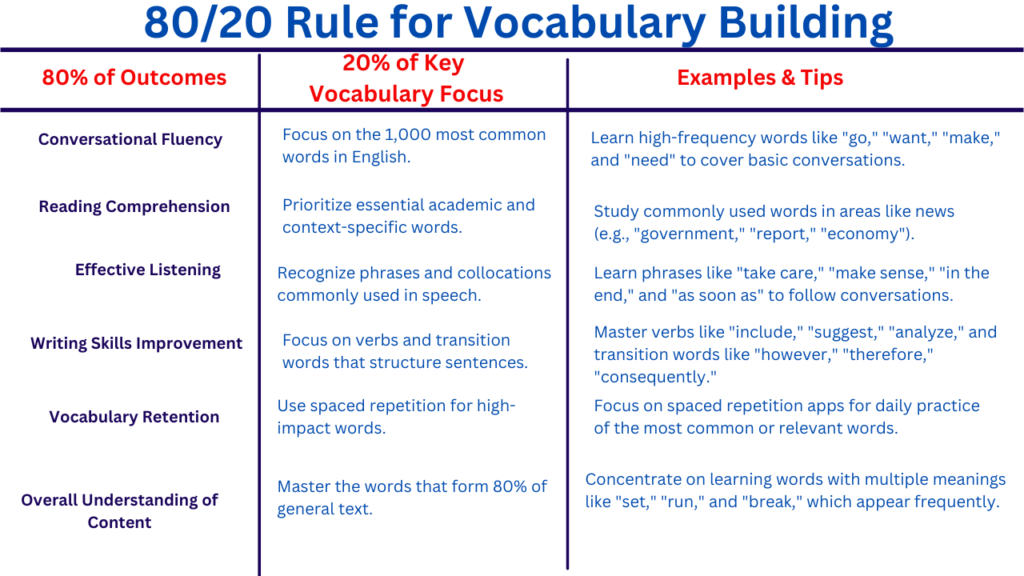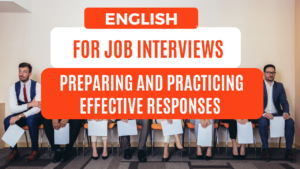Speak English Fluently: Language Experts Share 10 Powerful Strategies

Introduction
Achieving fluency is a common goal shared by many non-native speakers across the world. Imagine being able to confidently participate in meetings, share views with others, comfortably socialize with your friends and travel everywhere without worrying about language barriers. In today’s globalized world, the ability to speak English fluently is regards as a key skill one must possess, for success in both personal and professional life. Also, it opens doors to numerous opportunities for personal growth. The million dollar question here is, how?
This blog post will delve into ten proven techniques designed to help you speak English more fluently. These are proven techniques suggested by many language experts across the globe. These practical tips are designed for non-native speakers, offering actionable steps you can take to speak English like a pro.
Let’s embark on this journey together to enhance your English fluency with these ten proven techniques.
1. Set Specific and Realistic Goals
Setting realistic goals gives you a direction to focus on and keeps you motivated through your language learning journey. It also allows you to track your progress and tweak your speaking style to achieve the desired learning goal.
Action Steps:
- Set short-term goals, such as learning a certain number of new words each week or practicing speaking for 20 minutes daily.
- Break down bigger goals into smaller steps, like mastering a certain topic of grammar or improving a particular language skill like intonation or ideation.
- Regularly review your goals and adjust them to get the best out of yourself.
2. Immerse Yourself in the Language

This is the method I have found to be really useful. Surrounding yourself with the atmosphere that naturally encourages you to think and communicate in English. It can help you understand the nuances of English language. The more you expose yourself to the language, the more proficient you become.
This can be easily achieved by watching movies, listening to podcasts, reading books, listening to English songs and practicing speaking with others wherever you find the opportunity.
Action Steps:
- Read books, newspapers, or online articles in English. It allows you to learn new vocabulary and grammatical structures.
- Watch English movies, TV shows, and YouTube channels with subtitles in the beginning and then try watching without them, once you start understanding well.
- Listen to English songs while reading the lyrics to understand the words and expressions used.
- Subscribe to English podcasts related to your areas of interest and listen during your leisure time. They provide rich and varied vocabulary, along with exposure to natural speech patterns.
- Change your device language settings to English. Communicating in English on social media, whether by writing posts or commenting, also helps in refining your language skills. These small changes can significantly contribute to your overall fluency.
3. Focus on Speaking, Not Just Learning
Regular practice is indispensable when aiming to achieve fluency in English. Even if it is for a small duration but it should be done regularly to reap good results. Many non-native learners focus too much on learning grammar concepts or vocabulary, which is time-taking process. However, language experts emphasize the importance of using English in day-to-day life in order to gain fluency.
Action Steps:
- Allocate a significant portion of your time exclusively to English speaking practice. Aim for practicing speaking at least for 30 minutes a day.
- Talk to yourself in English. Describe your daily routine, your daily chores, your work, your habits etc, expressing your thoughts aloud. This method not only helps in vocabulary building but also boosts confidence.
- Have conversations with native speakers or other learners, whether in person or through online platforms. Use language exchange apps to find a speaking partner who shares the same learning goal as you.
- Look for local or online English-speaking clubs or groups. Such opportunities offer opportunities to interact with multiple speakers, honing your conversational skills.
4. Start With Simple Phrases
Taking the first step, in your English learning journey , would always be critical. Starting with simple phrases can get your motivation level up. Practice common greetings, introduce yourself, or ask basic questions.
Here are a few dialogue prompts to get you started:
Prompt 1: “Hi, my name is [Your Name]. It’s nice to meet you. What’s your name?”
Prompt 2: “What do you like to do in your free time?”
Prompt 3: “What are your weekend plans?”
5. Practice with Real-Life Scenarios
Practical, real-life scenarios are where your English skills will truly be tested. Practicing these situations prepares you to confidently handle them and shine.
Action Steps:
- Role-play common situations like ordering food at a restaurant, asking for directions, or making a phone call.
- Record yourself practicing these role-plays, then listen to identify areas which need improvement.
- Volunteer for activities that require English communication, such as guiding tourists or participating in international events.
- Travel to English-speaking countries or regions, even for a short trip, to immerse yourself in real-life English conversations.
6. Embrace Mistakes as Learning Opportunities
The biggest barrier non-native speakers need to face while trying to achieve fluency, is the fear of making mistakes. Language experts believe that making mistakes is a natural and essential part of the learning process. The faster you accept your mistakes and take steps not to repeat them, the faster you improve.
Action Steps:
- In the beginning, don’t expect perfection. Just focus on conveying your message using the vocabulary and grammar you already know.
- Learn from your mistakes by noting them down and reviewing them later, but don’t let them discourage you, at any point, in your learning journey.
- Surround yourself with supportive language partners who encourage you and provide honest feedback.
7. Use the 80/20 Rule for Vocabulary Building
The 80/20 rule, or Pareto Principle, suggests that 80% of your results come from 20% of your efforts. When it comes to language learning, this means focusing on knowing and memorizing the words that you can use, in most situations. That way, you will not feel the pressure of learning too many new words, on a daily basis, to express your thoughts effectively.

Action Steps:
- Learn 1,000 most common words in English, as they help you in about 80% of everyday conversations.
- Practice these words in proper context by using them in sentences, instead of just memorizing them in isolation.
- Gradually add new words to your vocabulary by adding more specific and less common words.
- Write down new words you com across and use them in sentences throughout the day.
- Play vocabulary-building games like crossword puzzles or Scrabble to learn in a fun way.
Want to learn new English words faster?
Grab my ebook : Talk Like A Pro : English Words for Real-Life Situations – having meaning of every word put into specific categories, along with relevant examples.
8. Engage in Social Learning

Look for opportunities to practice speaking English with others. It not only makes learning fun but also exposes you to different types of communication styles. Engage in conversations through comments, messages, or video chats on different social media platforms as well.
Action Steps:
- Join English conversation clubs, offline or online, where you can converse with others.
- Participate in group discussions and debates conducted in English.
- Use social media to connect with other English learners and native speakers.
9. Stay Consistent and Patient
Consistency is pivotal to achieving fluency. Devote some time daily for the practice purpose and ensure that you do it, without fail. Having a regular practice routine helps you stay on course and ensures that you improve constantly.
Action Steps:
- Make a daily schedule that includes dedicated time for English speaking practice.
- Don’t get discouraged by mistakes or slow progress. Remember that language learning is journey which must be enjoyed.
- Celebrate your achievements, no matter how small, to stay motivated and focused on your long-term goal.
10. Get Feedback
To make your learning effective, you must invite feedback from others. It helps in locating areas which need more attention and helps you make significant progress. Feedback must be constructive. If it is biased then it may not provide any help in your learning journey.
Action Steps:
- Seek feedback from native speakers, if possible.
- You can get feedback from language tutors who can provide precise and useful insights.
- Additionally, you may ask them to give you some tips for improvement, based on their own experience.
Frequently Asked Questions (FAQs)
1. What does it really mean to speak English fluently and confidently?
To speak English fluently means you can express your thoughts smoothly without long pauses or searching for words. Confidence comes from knowing what to say and believing you can say it clearly. Fluency and confidence together make your communication natural and engaging.
2. How can I start speaking English fluently for beginners?
If you’re wondering how to speak English fluently for beginners, start with short daily conversations in English. Listen to podcasts, repeat after native speakers, and record yourself speaking. Consistent practice—even 15 minutes a day—makes a huge difference.
3. Can I really learn to speak English fluently in 30 days?
You can make strong progress in 30 days if you follow a structured routine—daily listening, speaking, and vocabulary practice. Many learners use a speak English fluently course or a speak English fluently app to stay consistent. While complete fluency takes longer, you can definitely build solid conversational skills in a month.
4. What is the best way to speak English fluently without hesitation?
The best way to speak English fluently is to think in English instead of translating from your native language. Shadow native speakers, use real-life phrases, and engage in speaking clubs or online sessions. Over time, your hesitation will fade naturally.
5. Are there any tools or apps that can help me learn English speaking easily?
Yes! Many learners use a speak English fluently app or even try speak English fluently with AI tools that offer real-time feedback on pronunciation and grammar. These AI-based platforms can simulate conversations and help you practice anytime.
6. How can I gain fluency in English through self-study?
If you prefer learning alone, you can use a speak English fluently PDF, book, or online course for structured lessons. Combine reading and listening with active speaking practice—saying what you learn out loud. That’s how you truly gain fluency in English.
7. Is there a course that helps me learn to speak English fluently for free?
Yes, there are several speak English fluently free resources online—like YouTube lessons, podcasts, and e-learning websites. While paid courses offer deeper feedback, free options are great for daily practice and vocabulary building.
8. How to speak English fluently and confidently if I feel shy?
Start by practicing alone—speak in front of a mirror or record yourself. Join virtual speaking clubs where you don’t feel judged. Gradually, as you get used to your own voice, your confidence will rise. Even language experts once struggled with how to speak English fluently and confidently, so stay patient with yourself.
9. Can AI really help me improve my English fluency?
Absolutely! Modern AI English-speaking tools analyze your pronunciation, grammar, and tone. Practicing speak English fluently with AI helps you get instant corrections—like having a 24/7 speaking partner that never gets tired.
10. What’s the most effective strategy to learn to speak English fast?
If you’re wondering how to learn to speak English fluently, focus on real communication rather than grammar perfection. Think of fluency as flow—speak daily, listen to natural English, and mimic tone and rhythm. Immersion and consistency are your best teachers.
Conclusion
Mastering English fluency is a journey that involves dedication, consistent effort, and use of right strategies. By integrating these techniques into your daily routine, you can create a holistic and effective learning experience.
Make use of every opportunity you can get to use English in daily life. Initially, mistakes will be more but they will reduce as you pay more attention and keep improving. Make best use of technology to get help in the learning journey.
Be patient with yourself and don’t forget to keep yourself motivated by acknowledging small improvements. Each step forward, no matter how minor it may seem, is a testament to your progress and commitment.
Share your thoughts:
If you found these tips helpful, share this blog post with others who are on their journey to mastering English. If you’re looking for more ways to enhance your fluency, stay tuned for our upcoming blog posts where we will dive deeper into specific techniques and offer additional resources to support your learning. Remember, every bit of effort you invest brings you closer to becoming a confident and fluent English speaker.
I create content to make English learning simple and practical. If you find it helpful, consider supporting me Your contribution helps me improve my skills and bring better content for you.




I’ve learned so much from this blog, and I’m really grateful for all the helpful advice.
Thank you for your kind comment! Keep learning.
It’s really a cool and helpful piece of info. I’m glad that you simply shared this helpful info with us. Please keep us up to date like this. Thank you for sharing.
Thanks! Keep coming back for more…
I am extremely inspired with your writing talents as well as with the layout in your blog. Is that this a paid topic or did you customize it yourself? Anyway stay up the nice high quality writing, it’s uncommon to peer a nice blog like this one today!
Thank you!
I am extremely impressed together with your writing talents and also with the
layout for your weblog. Is this a paid topic or did
you modify it yourself? Anyway stay up the nice quality writing, it is uncommon to look a nice blog like this one
these days.
Thank you so much! 🙂
Sweet site, super style and design, rattling clean and utilise genial.
Thank you for your lovely comment!
This content is fascinating. I really liked it. Enjoy and check out this content. Be sure to access it to find out more. Thank you all and see you soon. 🙂
Happy to be of help! Thank you
This web site is my inspiration , real good design and perfect content.
Thank you so much! Keep sharing your views.
You could definitely see your enthusiasm in the work you write. The world hopes for even more passionate writers like you who are not afraid to say how they believe. Always go after your heart.
Yess, I will! Thank you for boosting my morale.:)
Really nice style and wonderful articles, practically nothing else we want : D.
Thank you!:)
I like the valuable info you provide in your articles. I will bookmark your weblog and check again here frequently. I’m quite certain I will learn a lot of new stuff right here! Good luck for the next!
Thank you so much! Means a lot.
I believe this website has got some real excellent info for everyone. “I have learned to use the word ‘impossible’ with the greatest caution.” by Wernher von Braun.
Thanks for your kind words!
I’ve recently started a website, the info you offer on this web site has helped me tremendously. Thank you for all of your time & work. “Character is much easier kept than recovered.” by Thomas Paine.
You’re most welcome!
Great awesome issues here. I am very happy to peer your article. Thank you a lot and i’m looking forward to touch you. Will you please drop me a mail?
Sure! Thank you
I savor, lead to I found exactly what I was looking for. You’ve ended my four day lengthy hunt! God Bless you man. Have a nice day. Bye
Thank you! Keep coming back for more.:)
With havin so much content and articles do you ever run into any issues of plagorism or copyright violation? My site has a lot of completely unique content I’ve either written myself or outsourced but it looks like a lot of it is popping it up all over the web without my authorization. Do you know any solutions to help protect against content from being ripped off? I’d definitely appreciate it.
No, I never faced any such issue! Please keep commenting on my blog posts.
I had a fantastic experience with this site.
Thank you!
What i do not understood is in reality how you’re no longer actually much more neatly-liked than you may be now. You are very intelligent. You already know therefore considerably in terms of this matter, made me personally believe it from a lot of varied angles. Its like women and men are not involved until it is one thing to accomplish with Woman gaga! Your own stuffs nice. Always maintain it up!
Thank you for encouraging me!
Thanks for sharing such valuable information.
Thank you!
I completely agree with your points.
Thank you!
This guide is extremely helpful.
I’m glad that you found it useful.
Very well explained.
Thank you for your feedback!
This is really interesting, You are a very skilled blogger. I’ve joined your rss feed and look forward to seeking more of your magnificent post. Also, I’ve shared your web site in my social networks!
Keep coming back for more! Thanks for sharing.
Thanks for the fantastic advice in this post.
Its such as you read my thoughts! You appear to grasp so much approximately this, like you wrote the e book in it or something. I feel that you could do with some to pressure the message home a bit, however other than that, this is magnificent blog. A fantastic read. I’ll certainly be back.
Sure! Keep coming back for more. Thank you.
Would love to perpetually get updated outstanding blog! .
Thank you so much!
What i don’t understood is actually how you are no longer really a lot more smartly-preferred than you might be right now. You are so intelligent. You know therefore considerably in the case of this subject, made me in my opinion consider it from a lot of numerous angles. Its like women and men don’t seem to be interested unless it?¦s something to do with Woman gaga! Your own stuffs excellent. Always take care of it up!
Thank you for your detailed feedback! Keep coming back for more.
Simply a smiling visitant here to share the love (:, btw outstanding design.
Thank you for your simple yet lovely comment!
I’d have to examine with you here. Which is not one thing I usually do! I take pleasure in reading a post that may make folks think. Additionally, thanks for permitting me to comment!
You’re welcome! Keep enjoying the content here.
Have you ever thought about including a little bit more than just your articles? I mean, what you say is valuable and everything. But just imagine if you added some great pictures or video clips to give your posts more, “pop”! Your content is excellent but with images and videos, this website could definitely be one of the very best in its niche. Excellent blog!
Sure! Will consider these points in my upcoming posts. Thanks for your feedback.
Please let me know if you’re looking for a author for your site. You have some really good articles and I feel I would be a good asset. If you ever want to take some of the load off, I’d really like to write some material for your blog in exchange for a link back to mine. Please shoot me an email if interested. Many thanks!
Sure! I’ll keep your offer in mind. Thank you for your feedback!
You got a very superb website, Gladiola I observed it through yahoo.
Thank you for sharing your feedback!
I view something truly special in this web site.
Thank you!
Thank you for another magnificent post. Where else could anyone get that kind of info in such a perfect way of writing? I’ve a presentation next week, and I am on the look for such info.
Thanks! Happy to help.:)
Wow, amazing blog structure! How long have you ever been running a blog for? you make blogging look easy. The overall glance of your site is excellent, as neatly as the content!
Thank you for your detailed feedback! Subscribe for more.
Hi there are using WordPress for your site platform? I’m new to the blog world but I’m trying to get started and set up my own. Do you need any coding knowledge to make your own blog? Any help would be greatly appreciated!
Coding is not required. I’m using WordPress.
Hey! Quick question that’s totally off topic. Do you know how to make your site mobile friendly? My blog looks weird when browsing from my iphone. I’m trying to find a theme or plugin that might be able to fix this issue. If you have any recommendations, please share. Many thanks!
I have not faced this issue so far. Thank you for your comment.
I appreciate, cause I found exactly what I was looking for. You’ve ended my four day long hunt! God Bless you man. Have a great day. Bye
Thanks for your feedback!